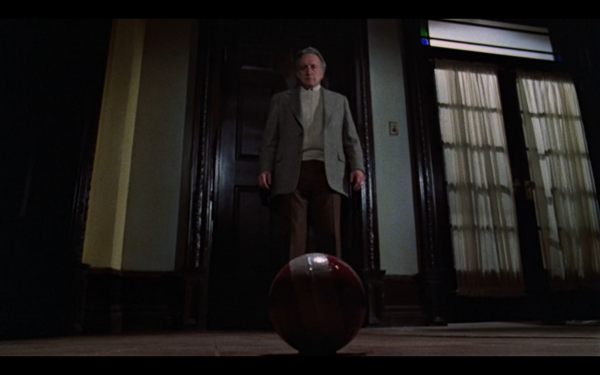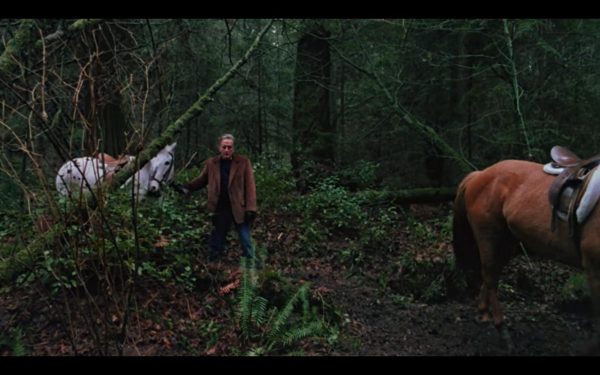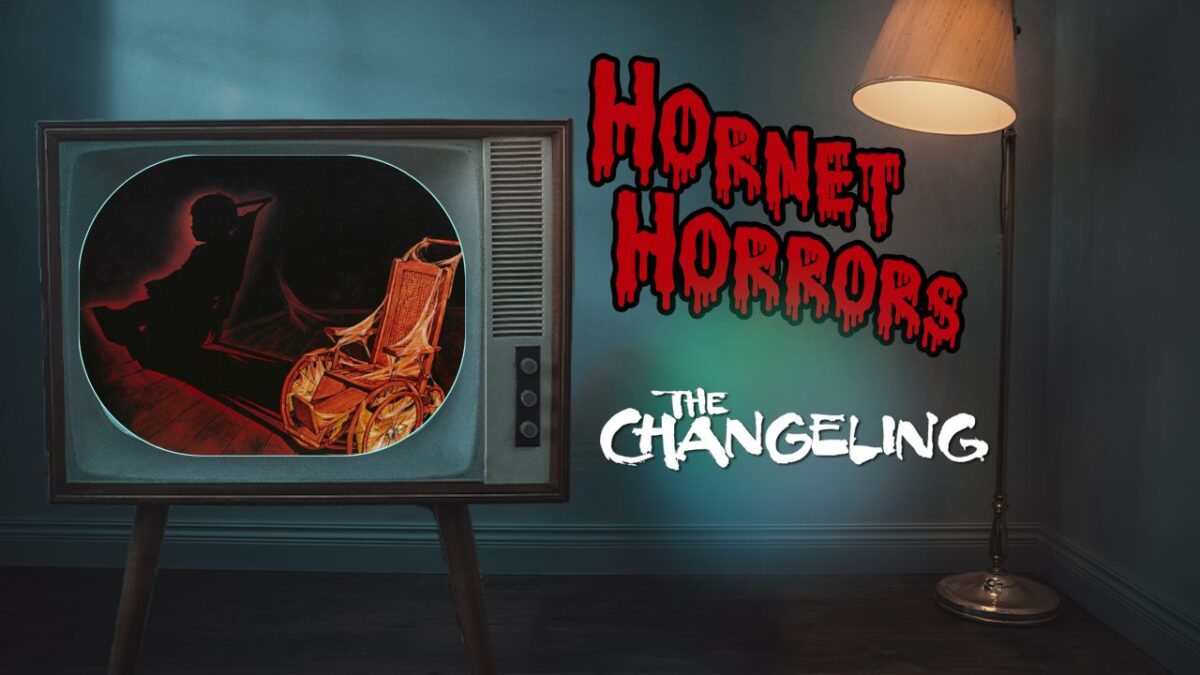Disclaimer: Spoilers for the story of the film are in this review.
There are few horror archetypes as reliable in the genre as the haunted house setting, and 1980’s “The Changeling” is one of the best uses of the archetype.
While many may have not heard of this Canadian film, it’s had an influence on several prominent directors, including Martin Scorcese and Guillermo Del Toro. It’s not hard to see why, there’s a lot this film does right from a filmmaking standpoint.
The story itself isn’t anything new. A composer named John Russell, played by George C. Scott, loses his family in an accident and moves to a new home to try and move on with his life only to find it beset by a paranormal presence. In an attempt to put the spirit to rest, he uncovers a nearly 80-year-old secret.
Where the plot of the movie lacks originality it makes up for in its efficiency. The movie follows the “Chekhov’s Gun” principle of storytelling; if an element is introduced to the story, it’s going to be important.
RELATED: Hornet Horrors: ‘Re-Animator’
There are a lot of examples of this, but the best instance is the toy ball that belongs to the protagonist’s deceased daughter that he brings with him to his new home. Initially, it’s introduced as an object for him to channel his grief toward.
A lot of movies would leave it at that, but “The Changeling” uses it to create one of its most iconic scenes. The protagonist throws the ball off a bridge later in the film, only to find it bouncing down the stairs when he enters through the front door.

This principle is used throughout the film, especially in regard to the supernatural elements Russell encounters. The result is a movie that trims the fat you would find in similar flicks and, for the most part, avoids scenes or elements that don’t go anywhere.
By providing a strong performance as the grieving composer, Scott’s screen presence is a great boon for the film. Much of the film’s emotional core lies not in the sense of fear he feels toward the haunting of his home, but the parallel between his inability to fully move on from his family’s death and the ghost’s failure to move on from its own.
Scott’s acting is subtle and not as melodramatic as female lead Trish Van Devere in the role of Claire Norman. While this does mean his reactions to the haunting are sometimes more muted than they should be, it also means the moments when he does briefly snap have a much greater effect.
The movie’s scenery was also surprisingly varied and used an array of natural and urban environments. Mixed in with the shadows of the old house, is the stark white of the movie’s intro and some vibrant greens of the local nature. Combine that with the film’s great camera work and you have a movie that knows how to take advantage of being a visual medium.

However, the one thing working against it is that it’s not necessarily a scary movie. Part of this can be chalked up to modern sensibilities, but overall the movie’s atmosphere is one of discomfort rather than true terror.
Horror and what scares you is a very personal thing. “The Changeling” is inspired by an alleged real life haunting experience which co-writer Russell Hunter personally experienced. The main character’s name and profession as a composer are both lifted from Hunter as well.
The problem with a personal story is that a general audience hasn’t had that same experience, so it’s harder to empathize with it. What may have caused genuine terror in Hunter may not elicit the same response in another person, while the reverse is true as well.
The film’s antagonist is also something up for debate, and to be honest neither option really sits well. The elderly Senator Carmichael, played by Melvyn Douglas, is seemingly meant to be the person viewers are supposed to root against, but in the grand scheme of things he’s more of an unknowing beneficiary of a crime than an active participant.
Meanwhile, the ghost haunting Russell’s home gets progressively more violent as the film progresses, until it’s actively trying to kill people. At the same time, it’s hard to expect an audience to not sympathize with the ghost of a murdered child, even when his own paranormal actions become more heinous.
When the film reaches its climax and Carmichael is killed while the ghost is still trapped on the now burnt down property, it’s hard to feel a sense of satisfaction. Whether this bit of moral ambiguity is a positive or a negative is ultimately up to the individual viewer.
More than anything, this is a great movie for people who really like movies. If that’s what you’re looking for, then “The Changeling” is a solid enough recommendation with a lot of influential people to vouch for it. If your interest lies in the spooky or the schlocky, you may want to look elsewhere.







































































































































